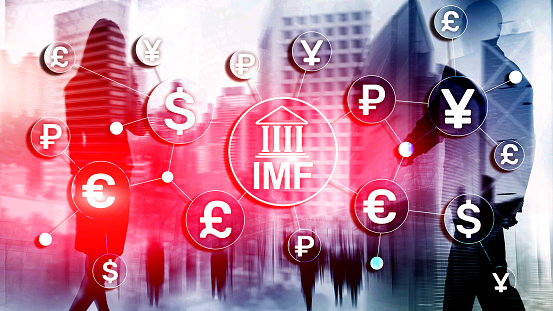Digital Zeitgeist – IMF Predicts That Ultra-Low Interest Rates Will Return
According to a report, the increase in inflation brought on by the pandemic is more likely to be a passing trend than a fundamental change in the state of the world economy.
The International Monetary Fund (IMF) predicts that soon, ultra-low interest rates will return and that inflation will decline.
For homeowners, many of whom have lately experienced a sharp increase in mortgage costs, this will be great news.
Ageing populations and poor productivity, according to the United Nations financial agency, are expected to control inflation and return interest rates to levels seen before COVID.
According to the IMF, Britain’s four-decade-high inflation rate is only a blip in the wider trend of low-interest rates rather than a long-term shift in the world’s financial environment.
“Recent increases in real interest rates are likely to be temporary. When inflation is brought back under control, advanced economies’ central banks are likely to ease monetary policy and bring real interest rates back towards pre-pandemic levels,” a report by IMF economists concluded.
The IMF investigation discovered that the epidemic had had no impact on the “natural” rate of interest.
The so-called “natural” rates of interest, an anchor for monetary policy that neither stimulates nor discourages economic activity, “will remain low in advanced economies or decline further in emerging markets,” the report concluded.
If true, less fiscal pressure will be felt since governments would be able to borrow money more affordably.
Yet, it would mean that central banks, particularly in developed, wealthy nations, could once more need to rely on measures like bond purchasing and others to lower policy interest rates.
According to some economists, the pandemic increased the natural rate of interest, reversing factors like globalisation that had helped keep borrowing costs low and causing government debt to reach record highs.
The IMF stated that it is conceivable that things have changed and underlined that it is still too early to tell what effects changes like the shift to a less carbon-intensive economy will have.
The fund stated that the present high rates “are likely to be transitory,” based on its study.
Once rates normalise to prior low levels, a deep enough recession may force central banks “to resort to the same strategies they employed in the decade before the pandemic, such as balance sheet policy and forward guidance”.
online sources: theguardian.com, news.sky.com

